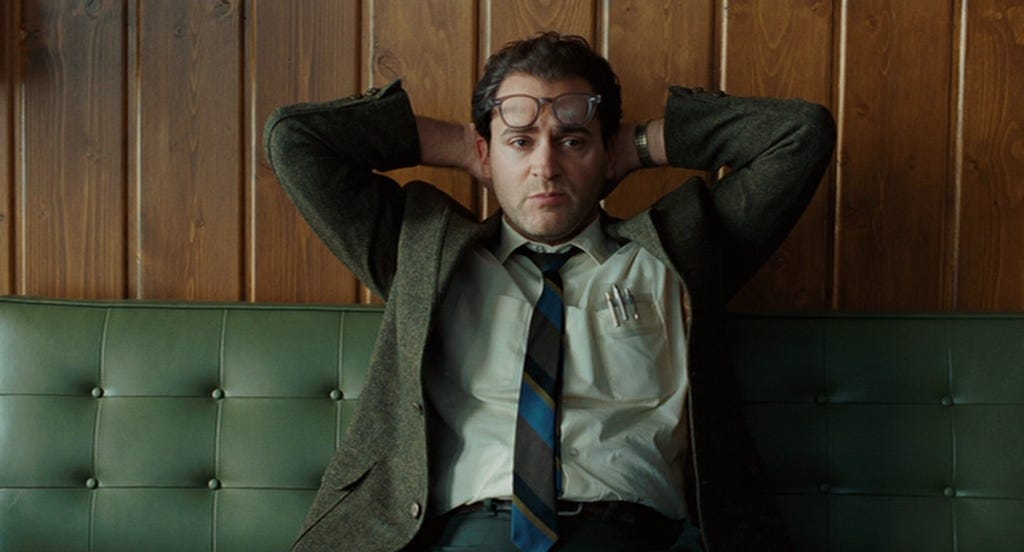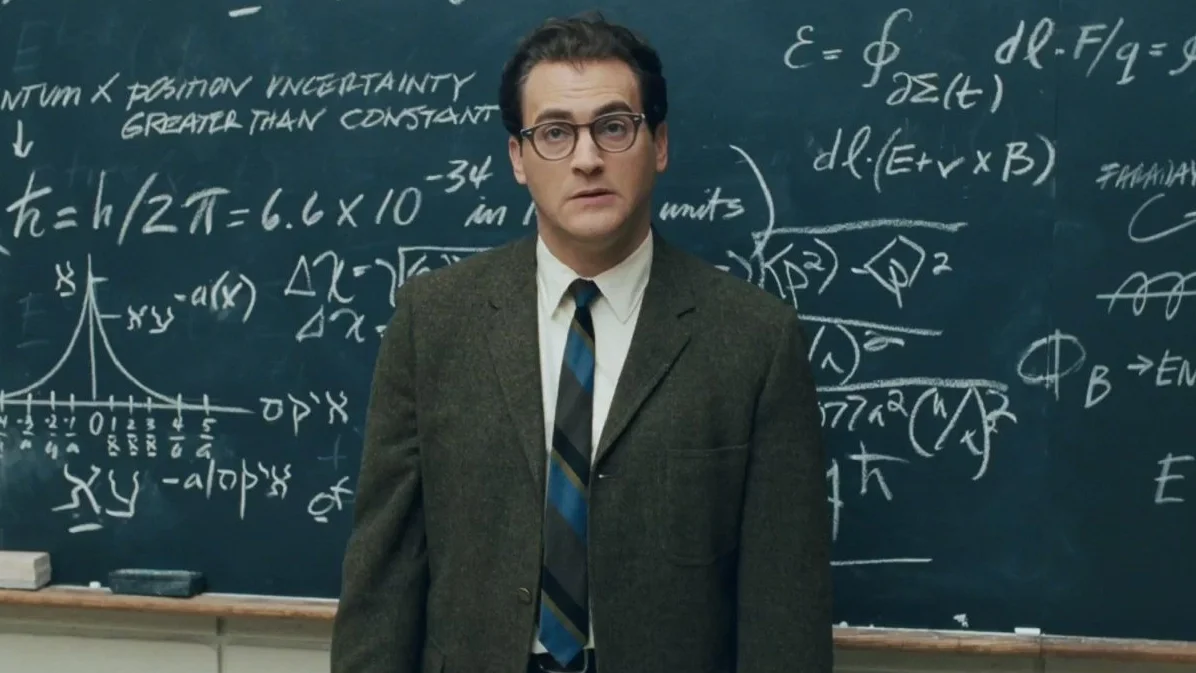A Serious Man is a film that cannot be simply solved. Joel and Ethan Coen created it to explore paradox, morality, and the Jewish experience rather than to provide clear answers. The story focuses on Larry Gopnik, a physics professor whose life unravels in ways he cannot control. The film examines the tension between human desire for certainty and the unpredictable nature of existence. It also highlights how Jewish identity interacts with American culture, showing the conflict between communal obligations and individual ambitions.
Dybbuk Parable and Larry Gopnik’s Family Reveal Uncertainty and Cultural Conflict Themes
The film begins with a parable about a dybbuk, a spirit that confuses the living. Velvel, a man in a small Jewish town, unknowingly interacts with a dead man. His wife, Dora, believes the visitor is possessed and attacks him. The scene leaves the audience uncertain whether the man is a spirit or an ordinary traveler. This prologue sets the tone for the entire film, suggesting that life is ambiguous and events cannot always be explained. The parable also reflects the central theme that human understanding is limited and certainty is elusive.

The story then shifts to modern-day Larry Gopnik and his family. Larry is on the verge of receiving tenure as a physics professor, but he faces a series of personal and professional crises. His son Danny is more interested in music and teenage adventures than in preparing for his bar mitzvah. His wife Judith pursues extramarital attention and seeks a divorce. Larry’s sister, Sarah, and other relatives contribute additional challenges. Through these characters, the Coens portray a Jewish family living in America, where cultural assimilation and personal priorities often conflict with religious and communal values.
Larry’s Struggles Highlight Job-Like Suffering, Rabbi Guidance, and Jewish-American Cultural Conflicts
Larry’s experiences echo the biblical story of Job, who endured suffering without understanding why. This comparison invites viewers to consider whether misfortune tests moral character. Unlike Job, Larry is not devoted or patient. He seeks logical explanations for the difficulties in his life. He attempts to apply scientific principles, such as Heisenberg’s Uncertainty Principle, to make sense of his world. The Job analogy highlights both similarities and differences, showing how suffering and uncertainty affect humans differently depending on faith and perspective.
Larry consults three rabbis to understand his problems. Each provides ambiguous or absurd advice. Rabbi Scott gives a darkly ironic comment about finding God in a parking lot. Rabbi Nachtner tells a story about a Jewish dentist discovering messages in the teeth of a goy, a narrative without a clear moral lesson. Rabbi Marshak advises Larry to accept the mystery. These interactions reinforce the film’s central message that life cannot be fully understood and that moral and spiritual guidance does not always come with clear instructions.
The Coens explore the tension between Jewish communal identity and American individualism. Jewish tradition emphasizes collective responsibility and moral obligation to the community. Larry and his family, however, prioritize personal convenience and ambition. Danny is distracted by secular interests, Judith seeks divorce for her own reasons, and Uncle Arthur attempts to gain an advantage in personal affairs. This contrast illustrates the paradox of modern Jewish life, where cultural assimilation and American values complicate adherence to tradition and collective responsibility.

Larry’s Misguided Belief That Good Behavior Guarantees Rewards in an Uncertain Universe
Larry believes that passivity and avoidance of wrongdoing make him a good person. He expects the universe to reward him for moral behavior. This belief reflects his desire for logical certainty. The Coens critique this idea, showing that morality in Jewish tradition is not transactional. God does not intervene to reward or punish on demand. Humans are responsible for their actions regardless of the outcomes. Larry’s confusion demonstrates the conflict between the human desire for fairness and the moral universe, which operates according to different principles.
The climax of the film shows the interplay of order and chaos. Larry finally receives tenure, achieving success and stability. Immediately after, he faces legal bills and moral compromise by accepting a student’s bribe. Simultaneously, a tornado approaches Danny’s Hebrew school, reminiscent of biblical disasters. These events show that consequences extend beyond immediate actions and that life is unpredictable. The Coens highlight that humans must act ethically even when outcomes are uncertain.
A Serious Man presents a moral universe where order and chaos coexist. Larry’s inability to understand paradoxes mirrors human struggles with meaning and morality. His desire for mathematical certainty conflicts with the ambiguous ethical and spiritual framework around him. The story demonstrates that actions have consequences beyond individual awareness, affecting family and community. This emphasizes the interconnected nature of morality and the unpredictable consequences of human behavior.
The film encourages acceptance of life’s uncertainties. Larry’s experiences show that morality is not a tool for achieving reward. Jewish tradition requires ethical effort without expectation of compensation. The unresolved tornado, unanswered questions, and ambiguous ending reinforce the lesson that life is complex and often paradoxical. The Coens suggest that humans must act responsibly while accepting the limits of understanding and the mysteries inherent in existence.



